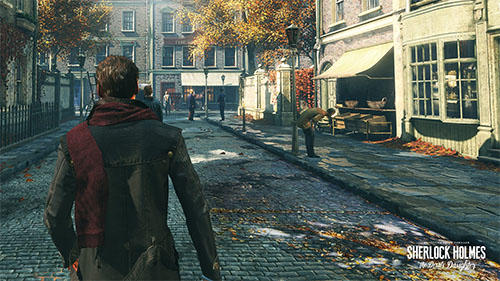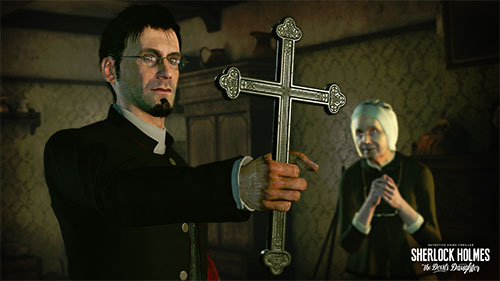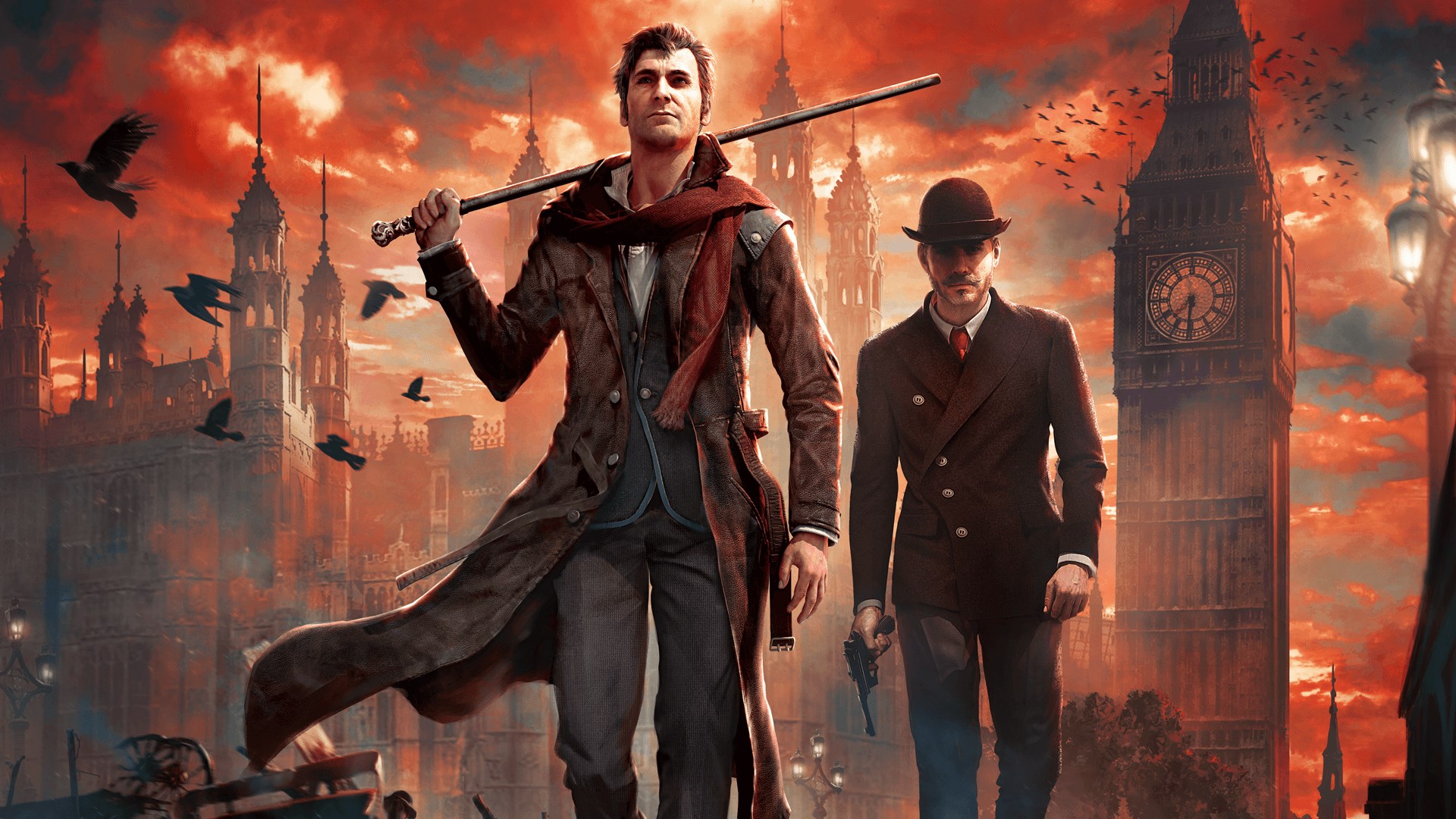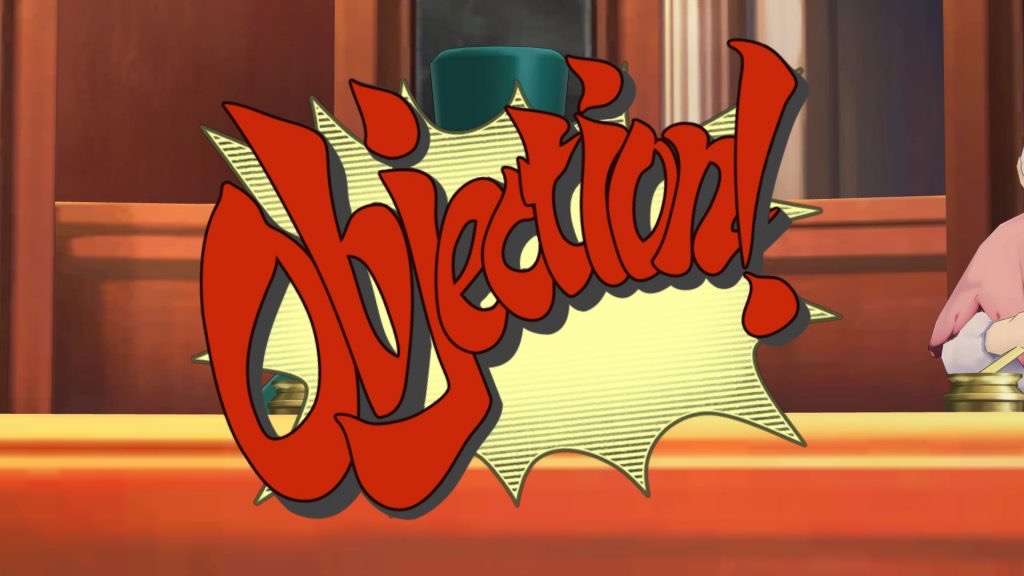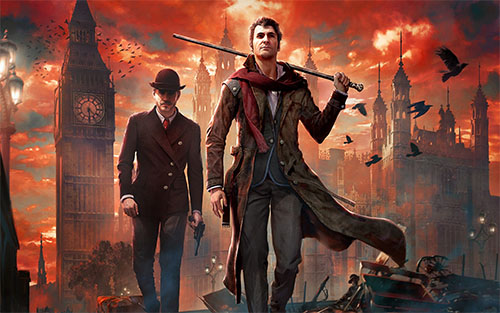
Frogwares’ Sherlock Holmes series is like the Energizer bunny of video games. It just keeps going and going and going, and I’m not quite sure how. Certainly, these aren’t huge titles that generate a lot publicity, nor do they contain the kind of mass-appeal that many game series with serious longevity have. They’re niche adventure titles that place you in Sherlock’s shoes in 19th century London, and until recently held an almost stuffy quality to the storytelling and voice acting. However, we’re now in the eighth installment of the franchise (not counting the DS and hidden object spinoffs), and the series is still going. It’s really very impressive, given that not many of the entries have been able to garner much mainstream attention, outside perhaps of Sherlock Holmes: The Awakened‘s crossover with H.P. Lovecraft lore.
Sherlock Holmes: The Devil’s Daughter continues the attempt started in the previous game, Crimes & Punishments, to liven up the series and inject some tension and excitement into the proceedings. The game presents five separate cases to test the great detective’s wit – from a murder at a lawn bowls club (that somehow involves a stupendously silly Indiana Jones climax), to a giant stagecoach crash. In each of these cases, you’re asked to collect evidence and facts and draw your own conclusions, accusing whoever you think is guilty and then either absolving or condemning their actions. Throughout it all, a lingering plot thread from the sixth game, The Testament of Sherlock Holmes, is built upon as Sherlock has troubles with his adopted daughter (any guesses who the real father is?) and a mysterious new neighbour, Alice, who seems to be drawing her away.
The quality of the writing varies throughout the game, as cases can start out promising, but lead to vague or anticlimactic resolutions. For instance, the third case of the game involves a bomb being thrown into 221B Baker St, and tracking down the culprit responsible by going undercover in the criminal world. However, the various possibilities are all collected for you at the police station by the end, with your choice resulting in a simple short cutscene that doesn’t advance your understanding of the case much further.
Your main goal in each case is to form ‘deductions’ by collecting both physical evidence and information. Information appears as thoughts in a cerebral-menu which can be accessed, allowing you to connect two thoughts together to create an idea. These ideas can sometimes alternate between two options or interpretations, forming new pathways and eventually leading to a deduction on who the culprit is – and there’s always multiple answers. It was a great system in Crimes & Punishments and it’s a great system here as well, although it is somewhat marred by the ability to check your ultimate conclusion at the end of a case. If you have accused the wrong man, you can always go back and try again, which takes away from some of the pressure and thrill of making sure your evidence is sound and your line of reasoning correct. You can just keep connecting ideas and replaying the ending until you get the right bad guy.
Speaking of evidence gathering, there are some clever uses of Sherlock’s talents and abilities. An analysis table back at 221B Baker St allows you to perform rudimentary forensics on pieces of evidence to discover new clues, which is a neat little inclusion. Sherlock also has access to a wardrobe and makeup table to create his famous disguises, which range from a bandit to a priest. You can use these whenever you like, and while they often don’t affect gameplay at all, it’s nonetheless a nice little Holmes-ian touch.
The main problem the game faces is in the developer’s attempts to up the action this time around. There’s a huge number of quicktime events and little mini-games that are obviously meant to provide variety and a bit more flavour to the standard evidence gathering and deduction forming. Unfortunately, the shifts in gameplay are sometimes sudden and often poorly explained. Quicktime events where time slows as you must focus in on an action can be simple, or they can involve knowing a specific sequence of events that involves replaying the scene again and again until you get it right. Sherlock might be hiding from a villain in a cutscene when suddenly you’re thrown back into gameplay and asked to hide, with no indication how that’s done or where to go, and only seconds before you’re shot. Picking locks is an easy mini-puzzle once you know how it’s done, but it’s initially presented in a pretty baffling fashion. There are many more instances of this, but instead of raising the game to a new, exciting level, they serve only to disrupt the flow of the game and frustrate.
Visually, the game is a somewhat mixed bag. While the detail on characters and environments is impressive, the framerate has trouble keeping up and is generally all over the place as you run around London. The voice acting is serviceable, as Holmes’ new actor is certainly less ponderous than his predecessor from the earlier games in the series, but other characters fail to come into their full potential, an incompetent American character who comes to live with Holmes being the only other standout.
Sherlock Holmes: The Devil’s Daughter will probably please those who have stuck with the series all the way from Mystery of the Mummy, and who have been waiting for a payoff for the storyline from The Testament of Sherlock Holmes. However, the attempts to liven up the action only disrupt the formula which worked quite well in Crimes & Punishments, and as a result that formula is now starting to seem a bit tired and in need of yet another reboot, come the inevitable sequel. There is some elementary adventure to be found here, but new players looking for a real Sherlock Holmes experience would find better material in some of the previous installments.
-Some neat takes on Sherlock's talents -Nice detail in the visuals -Interesting case ideas
-Storytelling can get a little wonky -Action scenes and mini-games are poorly thought out -Can become dull -Slowdown

